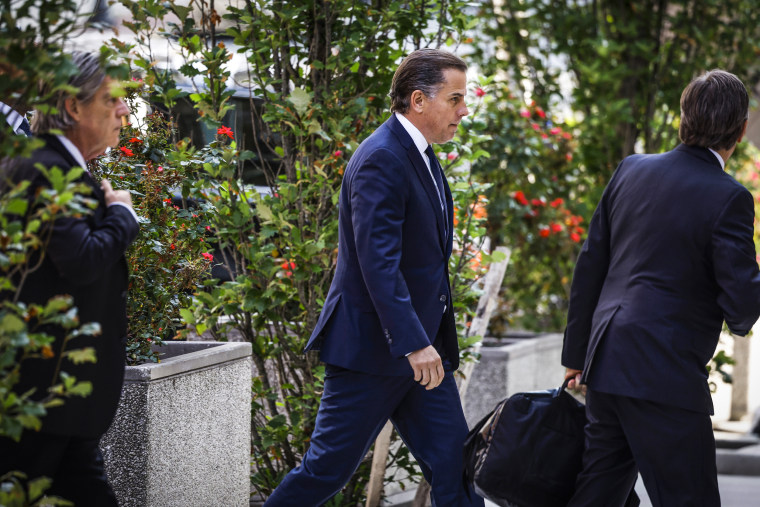Federal prosecutors are pushing back against assertions from Hunter Biden's lawyers that part of the shelved plea agreement with the president's son has been in effect.
In a court filing Tuesday, prosecutors from special counsel David Weiss’ office made it clear that as a result of Biden's not guilty plea last month, none of the discussed arrangements were applicable.
"The Defendant chose to plead not guilty at the hearing on July 26, 2023, and U.S. Probation declined to approve the proposed diversion agreement at that hearing. Thus, neither proposed agreement entered into effect," prosecutors wrote.
In a court filing Sunday, Biden's attorneys argued that while a guilty plea to misdemeanor tax charges was off the table for the time being, the so-called diversion agreement that would set aside a separate felony gun charge was "valid and binding."
The diversion agreement included a section labeled "Agreement Not to Prosecute," which the judge overseeing the case questioned at what was expected to be Biden's guilty plea last month.
The section would provide some protection from Biden's getting hit with other charges stemming from the same period as the misdemeanor tax charges, but the scope of the protections isn't clear.
House Republicans who've been investigating Biden's financial dealings criticized the plea agreement as a "sweetheart deal" and suggested the immunity protections in the diversion agreement showed he was getting preferential treatment.
At the July hearing before U.S. District Judge Maryellen Noreika, Biden lawyer Chris Clark said the clause was meant to ensure the case “wouldn’t become more politicized” if the government targeted Biden again in the future.
In their filing Sunday, Biden's attorneys argued the diversion agreement and the "so-called immunity provision" had taken effect because the agreement was signed by Biden, Clark and the lead prosecutor in the case, Leo Wise.
Prosecutors fired back Tuesday, accusing Biden's lawyers of being "misleading" and saying they knew the diversion agreement was a "draft" because the two sides tried to negotiate changes after the hearing. The prosecutors said they had noted in court that the document needed to be signed by the probation officer to take effect and that it was not, so "none of its terms are binding on either party."
An attorney for Biden didn't respond to a request for comment Tuesday. Weiss’ office declined to comment.
In a separate filing Tuesday, Clark moved to withdraw from Biden's legal team, anticipating that he may be called as a witness in any litigation over the failed plea negotiations.
Under the terms of scuttled deal, prosecutors had agreed to recommend probation if Biden pleaded guilty to two counts of failing to pay his taxes. A separate gun charge for illegally owning a Colt Cobra .38 Special handgun during a period when Biden was doing drugs would have been dropped in two years had he honored the terms of the diversion agreement.
Last week, prosecutors said that negotiations with Biden's team had broken down and that the case would most likely have to go to trial in California or Washington, D.C. They also suggested they could bring different charges.
The same week, Attorney General Merrick Garland appointed Weiss as special counsel to continue his investigation into the president’s son. Weiss, who was already overseeing the investigation as a U.S. attorney in Delaware, had requested the new authority earlier in the week.


